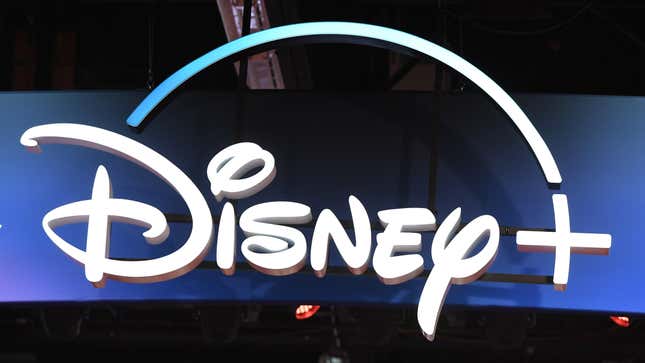
If you’ve had a cable subscription at any point in the last 80 years or so, you likely know that when people talk about about the “Big Three” networks, they’re referring to ABC, CBS, and NBC—the three major commercial broadcast television networks that dominated programming in the U.S. for decades. Now, according to new research from the analysts at Digital TV Research, it might soon be time to crown a “Big Three” for a new generation of media consumption: the streaming era.
After crunching the numbers, researchers found that global SVOD subscriptions are set to increase by 491 million between 2021 and 2026, eventually topping out at 1.64 billion. But while Netflix is the current reigning champion of streaming, reporting roughly 209 million global paid memberships at the end of Q2 in 2021, researchers expect that to shift imminently, with Disney+ projected to clinch the throne within the next five years. According to Digital TV Research, Disney’s streaming juggernaut is on track to add 140 million subscribers in that time, bringing its grand total to 284 million, while Netflix is expected to add 53 million new users, eventually reaching 271 million subscribers.
Although Disney+ is expected to be declared our original content overlord and the uncontested winner of the streaming wars by 2026, the analysts, crucially, project that three platforms will eventually control the lion’s share of global SVOD subscriptions, with Netflix and Amazon Prime Video currently trailing the Mouse House’s lead. Barring any shocking developments, that’s more than likely to be your Big Three of streaming, with the currently-crowded field getting smaller from there.
The emergence of a “Big Three of Streaming” was, when you think about it, almost inevitable. Capitalism incentivizes companies to play a game of Hungry Hungry Hippos to amass as much global power and influence as possible, and the streaming wars are no different: As recent trends have shown, each brand is now constantly trying to gobble up as much intellectual property as it can in order to offer would-be subscribers the most tantalizing assortment of content possible, crushing the competition in their wake.
Recent carriage deal dramas—like the one that just played out between YouTube TV and NBCUniversal, reportedly over the latter company’s demand that the platform bundle its proprietary streaming service, Peacock—just prove that bundle deals are likely the final frontier in brands’ never-ending quest for consolidation. Peacock has returned underwhelming subscriber numbers since it launched in 2020, and the nonsensical demand to have it bundled with YouTube TV was likely just NBCUniversal’s fraught bid to drive distribution. As the pack begins to thin out in the coming years, we’ll likely see more and more brands turning to bundle deals and other similarly desperate last-ditch efforts to reach new customers, no matter how little sense they make for the direct-to-consumer models that streaming was built upon. After all, 2026 is still a long ways away, and we still have a good chunk of the streaming wars left to fight.